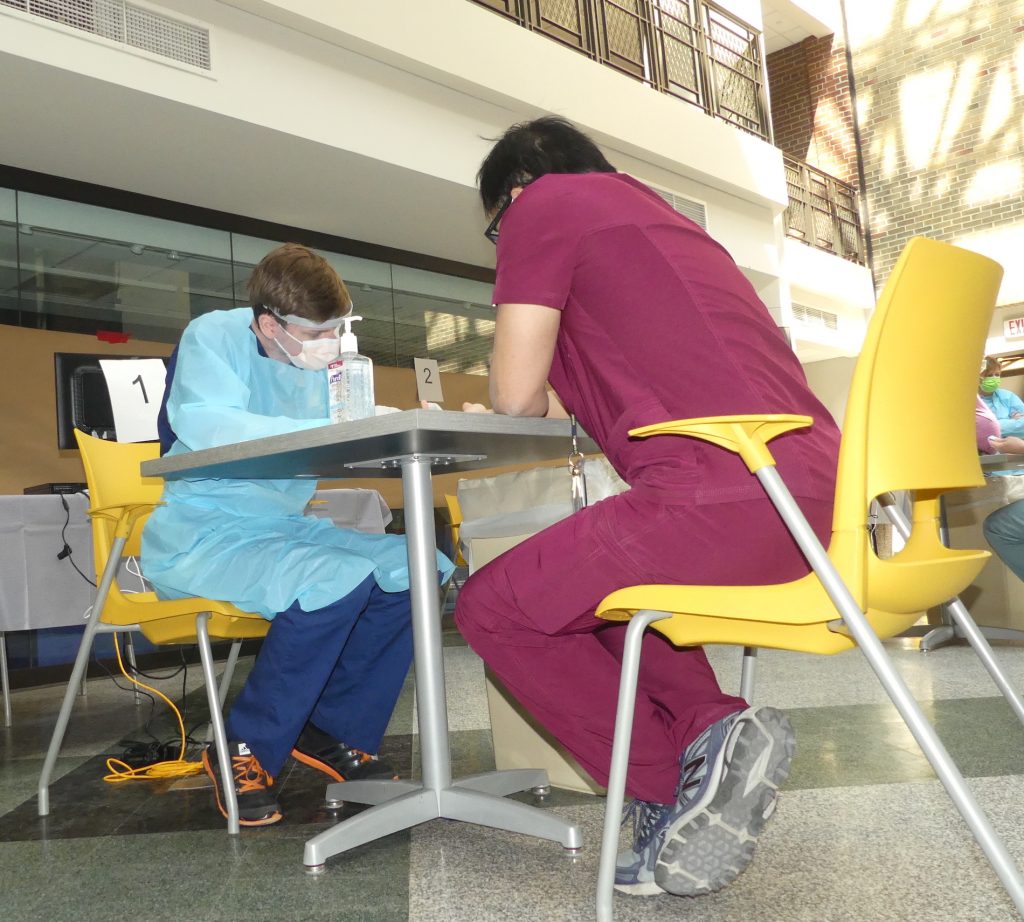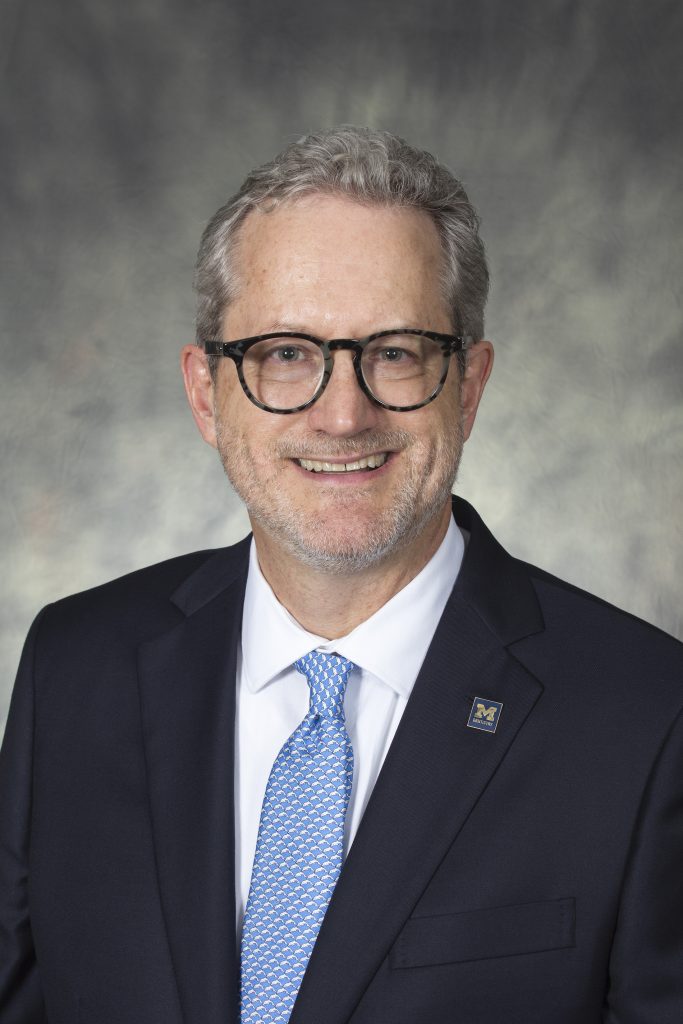School conducts COVID-19 antibody testing5 min read

Ann Arbor, Mich., June 11, 2020 – The School of Dentistry has joined a national effort to increase antibody testing related to the COVID-19 pandemic.
In April, the school began testing local front-line healthcare workers, and more recently expanded to a wider community including all faculty, staff, and students of the School of Dentistry as well as first responders and essential workers. Only people without symptoms of the virus are being tested after they complete a health history survey. Those being tested have the option to participate in a research survey to determine how many have antibodies, factors related to infection with the SARS CoV-2 virus, and perceptions of the COVID pandemic.
Participants signed up online, took the health history survey and scheduled appointments. The last day of the testing is Friday, June 19, and all appointments are filled through that date.
The project is being coordinated by several faculty members and staff who spent three weeks preparing protocols, procuring supplies, obtaining approval to conduct the research survey, and training those who are administering the tests.
The blood test detects the presence of antibodies created by the immune system’s response to the coronavirus. The tests can indicate whether a person has been infected with the virus but they do not detect the actual virus. Questions remain about whether people who have had the virus are immune from contracting it a second time, but the Centers for Disease Control (CDC) and other public health officials say widespread antibody testing is important. It will help answer the immunity question and document how many people across the country have been infected by the virus, which in turn can help in developing a process for reopening society.
In announcing the test during an online town hall meeting for the dental school, Dean Laurie McCauley emphasized that the type of assay being used by the dental school has been tested by Michigan Medicine’s Department of Pathology. “This test we are using has been validated here on our campus, with known positives and negatives,” she said. That’s important because national attention in recent weeks has questioned the reliability of antibody tests, many of which were quickly developed as the pandemic grew and haven’t been approved by the FDA. Some have given false positives and negatives.

Dr. Robert Eber, a Clinical Professor in the Department of Periodontics and Oral Medicine and the Director of Clinical Research, is leading the team of faculty members who are working in conjunction with several other universities around the country. They are partnering with Henry Schein, the world’s largest provider of healthcare solutions and services to office-based dental and medical professionals. Other members of the dental school faculty team include Dr. Margherita Fontana, Dr. Mark Fitzgerald, Dr. Brent Ward and Dean McCauley, along with numerous staff members, faculty volunteers and several dental students. Also providing key organizational support for the team has been Cassandra Callaghan, Chief Information Officer for the dental school. Groups involved in setting up the testing process and procedures include staffers from information technology, patient services, business and billing, among others.
Over the last several weeks of planning, regular conference calls have been held with Henry Schein representatives and the other dental school collaborators at New York University, Rutgers, Temple, Penn and the University of California at San Francisco.
The dental school study is just one of many projects related to the coronavirus that are being conducted on the U-M campus. The study that Eber submitted to the university Office of Research on April 22 is titled, “Restarting safely: Point of care assessment of SARS-CoV-2 antibody and antigen response in a healthcare setting.” The description explains that the project “will use an optional research questionnaire to collect demographic, exposure risk, quality of life, and testing results from subjects to determine the level of immunity to SARS-CoV2 in this population and answer many other questions related to risk determinants and impact of the disease.”
The antibody tests look for proteins in the blood called immunoglobulin M (IgM) and immunoglobulin G (IgG), which the body uses to identify infection by bacteria, viruses and other foreign substances. Once antibodies identify the threat, the body then attacks the invader, whether it be the coronavirus, influenza, the common cold or some other threat. The presence of those antibodies, and which type, can indicate the timeline for a person’s infection; for example, IgM antibodies typically arrive within days of the infection and IgG appear 6-10 days after the infection.
The procedure being used at the dental school requires a finger prick to obtain a few drops of blood from each participant. Tests are performed for the immunoglobulins IgM and IgG, each on a separate cassette. A drop of blood is placed in a well in each of the cassettes and then a liquid reagent is added in a separate well to activate the test. After about 15 minutes, color-coded lines indicate whether the test was run properly and whether the individual is positive or negative for IgM and IgG antibodies.
For more information on various coronavirus research projects underway at the university, the Office of the Vice President for Research has created a COVID-19 Research Index here.
###
The University of Michigan School of Dentistry is one of the nation’s leading dental schools engaged in oral health care education, research, patient care and community service. General dental care clinics and specialty clinics providing advanced treatment enable the school to offer dental services and programs to patients throughout Michigan. Classroom and clinic instruction prepare future dentists, dental specialists and dental hygienists for practice in private offices, hospitals, academia and public agencies. Research seeks to discover and apply new knowledge that can help patients worldwide. For more information about the School of Dentistry, visit us on the Web at: www.dent.umich.edu. Contact: Lynn Monson, associate director of communications, at [email protected], or (734) 615-1971.
